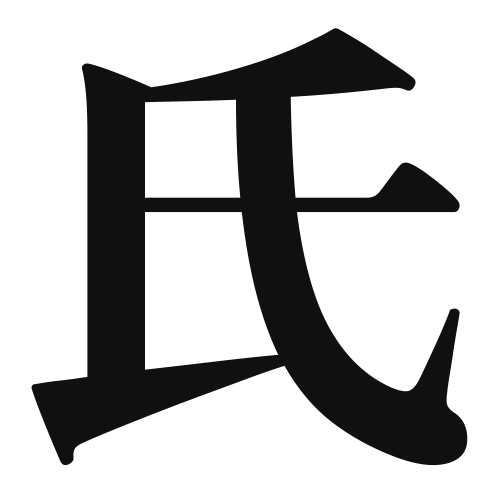1. Overview of Meaning
The kanji “氏” (ushi) primarily means “family name” or “clan.” It is used to refer to a person’s surname in a formal context, often indicating lineage or ancestry.
2. Formation and Radical
Formation of the Kanji: The kanji “氏” is classified as a phonetic-ideographic character (形声文字). It combines the radical for “earth” (土) at the bottom, which relates to the concept of land or place, with the phonetic component “shi” (氏) that suggests its pronunciation.
Radical: The radical of “氏” is 土 (earth), which often relates to land or place, emphasizing the connection to one’s roots or origin.
3. Examples of Usage
Common Words and Phrases:
- 氏名 (shimei) – full name
- 氏族 (shizoku) – clan or family group
Example Sentences in Daily Conversation:
- 彼の氏は田中です。 (Kare no shi wa Tanaka desu.) – His family name is Tanaka.
- 氏名を教えてください。 (Shimei o oshiete kudasai.) – Please tell me your full name.
4. Synonyms and Antonyms
Similar Kanji:
- 姓 (sei) – also means “surname,” but is more commonly used in a general sense rather than a formal one.
Antonyms:
- 名 (na) – means “given name,” which contrasts with “氏” as it refers to the personal name rather than the family name.
5. Cultural and Historical Background
The kanji “氏” is deeply rooted in Japanese culture, where family names often reflect historical lineage and social status. In traditional Japanese society, the family name was crucial for identifying one’s heritage and place within the community.
Proverbs and Idioms:
- 「氏より育ち」 (Ushi yori sodachi) – This proverb means “upbringing is more important than lineage,” emphasizing the value of personal development over family background.
